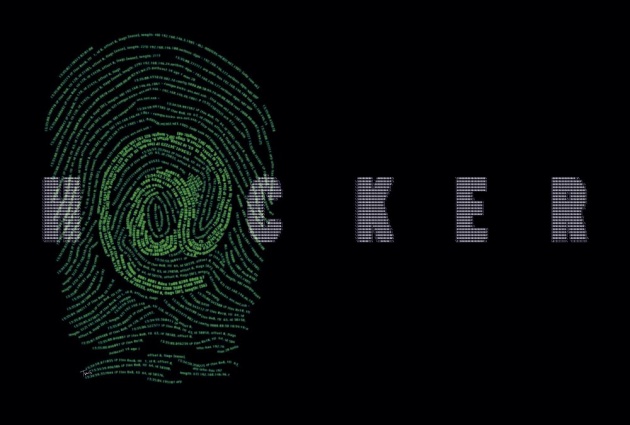
What's a Hacker?
Brian Harvey
college of California, Berkeley
in a single sense it is stupid to argue approximately the ``true'' that means of a phrase. A phrase means whatever humans use it to mean. I am no longer the Academie Française; I can't force Newsweek to use the phrase ``hacker'' in line with my reputable definition.
Still, information the etymological records of the phrase ``hacker'' may additionally help in understanding the present day social state of affairs.
The concept of hacking entered the pc culture on the Massachusetts Institute of era within the Nineteen Sixties. Popular opinion at MIT posited that there are kinds of college students, tools and hackers. A ``device'' is someone who attends magnificence often, is always to be located inside the library when no class is assembly, and receives directly As. A ``hacker'' is the other: someone who in no way goes to class, who in fact sleeps all day, and who spends the night pursuing leisure activities as opposed to analyzing. There has been idea to be no middle floor.
What does this ought to do with computer systems? Firstly, not anything. But there are standards for success as a hacker, just as grades shape a preferred for achievement as a tool. The actual hacker can not simply sit around all night time; he should pursue some interest with determination and flair. It could be phones, or railroads (model, actual, or both), or science fiction fandom, or ham radio, or broadcast radio. It could be more than this kind of. Or it can be computers. [In 1986, the word ``hacker'' is generally used among MIT students to refer not to computer hackers but to building hackers, people who explore roofs and tunnels where they're not supposed to be.]
A ``pc hacker,'' then, is a person who lives and breathes computers, who knows all about computer systems, who can get a laptop to do whatever. Equally crucial, although, is the hacker's mind-set. Pc programming have to be a interest, some thing achieved for a laugh, no longer out of a experience of obligation or for the cash. (it is okay to make money, but that cannot be the cause for hacking.)
A hacker is an aesthete.
There are specialties inside laptop hacking. An algorithm hacker knows all about the excellent algorithm for any trouble. A machine hacker is aware of about designing and preserving running structures. And a ``password hacker'' knows the way to find out a person else's password. That is what Newsweek ought to be calling them.
A person who units out to crack the safety of a gadget for economic benefit isn't always a hacker at all. It is no longer that a hacker cannot be a thief, but a hacker can not be a expert thief. A hacker must be fundamentally an beginner, even though hackers can get paid for his or her information. A password hacker whose primary hobby is in studying how the system works would not consequently necessarily chorus from stealing data or offerings, but a person whose number one interest is in stealing is not a hacker. It's a be counted of emphasis.
Ethics and Aesthetics
throughout most of the history of the human race, right and wrong have been noticeably easy standards. All of us turned into born into a selected social position, in a specific society, and what to do in any situation become part of the conventional which means of the function. This social destiny became backed up through the authority of church or nation.
This easy view of ethics turned into destroyed approximately 200 years ago, most considerably by using Immanuel Kant (1724-1804). Kant is in lots of methods the inventor of the twentieth Century. He rejected the moral force of way of life, and created the modern-day idea of autonomy. Along with this radical idea, he brought the centrality of rational concept as each the glory and the duty of humans. There's a paradox in Kant: every body makes free, self sustaining alternatives, unfettered by out of doors authority, and yet absolutely everyone is forced via the needs of rationality to just accept Kant's moral precept, the explicit vital. This precept is based on the idea that what is moral for an man or woman must be generalizable to all of us.
Present day cognitive psychology is primarily based on Kant's ideas. Relevant to the functioning of the mind, the general public now accept as true with, is information processing and rational argument. Even feelings, for plenty psychologists, are a form of theorem based totally on reasoning from facts. Kohlberg's theory of ethical improvement translates ethical weak spot as cognitive weak point, the incapability to understand sophisticated moral reasoning, in preference to as a failure of will. Disputed questions of ethics, like abortion, are debated as though they were questions of truth, subject to rational proof.
Because Kant, many philosophers have refined his work, and lots of others have disagreed with it. For our cause, information what a hacker is, we should take into account one of the latter, Sören Kierkegaard (1813-1855). A Christian who hated the established churches, Kierkegaard generic Kant's radical concept of private autonomy. However he rejected Kant's end that a rational character is always compelled to comply with moral ideas. In the e-book either-Or he presents a communicate between two people. One among them accepts Kant's ethical factor of view. The opposite takes an aesthetic factor of view: what's essential in existence is on the spot revel in.
The choice among the ethical and the aesthetic isn't always the selection among good and evil, it's miles the selection whether or not or not to pick out in terms of accurate and evil. At the heart of the cultured way of life, as Kierkegaard characterises it, is the try to lose the self within the immediacy of gift revel in. The paradigm of aesthetic expression is the romantic lover who's immersed in his very own ardour. By contrast the paradigm of the ethical is marriage, a kingdom of commitment and obligation thru time, in which the prevailing is bound by the beyond and to the future. Each of the two methods of lifestyles is informed via one of a kind principles, incompatible attitudes, rival premises. [MacIntyre, p. 39]
Kierkegaard's point is that no rational argument can convince us to comply with the ethical route. That choice is a extensively free choice. He isn't, himself, impartial approximately it; he needs us to select the ethical. But he needs us to remember the fact that we do have a actual desire to make. The idea of his very own choice, of route, changed into Christian religion. It is why he sees a need for religious conviction even inside the post-Kantian world. But the ethical preference also can be primarily based on an earthly humanist religion.
A lesson on the records of philosophy may additionally seem out of place in a role paper by a laptop scientist about a practical problem. But Kierkegaard, who lived a century earlier than the digital computer, gave us the most profound expertise of what a hacker is. A hacker is an aesthete.
The lifestyles of a true hacker is episodic, in preference to deliberate. Hackers create ``hacks.'' A hack can be whatever from a realistic funny story to a splendid new pc software. (VisiCalc become a excellent hack. Its imitators are not hacks.) however some thing it's miles, an amazing hack must be aesthetically best. If it's a comic story, it ought to be a whole one. If you make a decision to show someone's dorm room upside-down, it is now not sufficient to epoxy the furnishings to the ceiling. You need to also epoxy the portions of paper to the desk.
Steven Levy, inside the e book Hackers, talks at duration about what he calls the ``hacker ethic.'' This word could be very misleading. What he has determined is the Hacker Aesthetic, the standards for art grievance of hacks. For instance, while Richard Stallman says that statistics have to take delivery of out freely, his opinion is not based on a belief of property as theft, which (right or incorrect) could be an moral position. His argument is that retaining records key's inefficient; it ends in unaesthetic duplication of attempt.
The unique hackers at MIT-AI have been typically undergraduates, in their late young adults or early Nineteen Twenties. The classy point of view is pretty suitable to people of that age. An epic story of passionate love between 20-yr-olds may be very shifting. A tale of passionate love between 40-12 months-olds is much more likely to be comedian. To embrace the aesthetic lifestyles isn't always to embody evil; hackers want now not be enemies of society. They are younger and immature, and must be included for their personal sake as well as ours.
In sensible terms, the hassle of offering ethical training to hackers is similar to the hassle of moral schooling in preferred. Actual humans aren't absolutely moral or entirely aesthetic; they shift from one standpoint to some other. (they'll now not recognize the shifts. It's why Levy says ``ethic'' whilst talking approximately a classy.) some duties in ethical training are to elevate the self-focus of the younger, to inspire their growing ethical perspective, and to factor out gently and lovingly the conditions in which their aesthetic impulses work against their ethical requirements.



